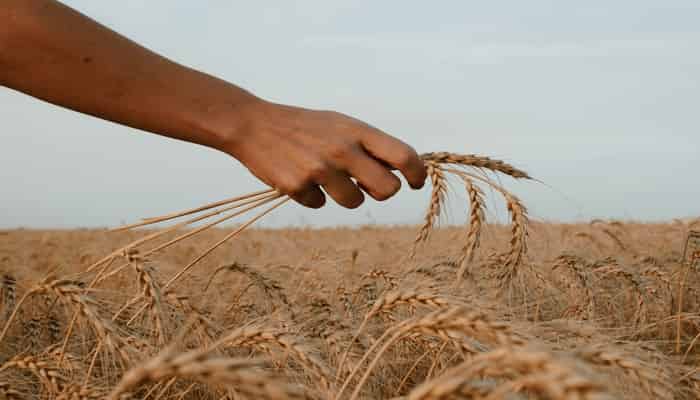IELTS Speaking Part 2: IELTS Cue Card
Describe a plant, vegetable or crop that you are familiar with.
You should say:
What it is and where it grows?
How you became familiar with it?
What you like or dislike about it?
And explain why this is important for your country.
Describe a plant grown in your country that you think is important.
You should say:
What it is?
Where it is grown?
Why is it important to your country?
Note: You will have to talk about the topic for one to two minutes. You have one minute to think about what you are going to say. You can make some notes to help you if you wish.
Model Answer 1:
Introduction: and What it is and where it grows?
Well, I come from Punjab a state known for agriculture. All types of crops are grown here but the one I would like to talk about is Wheat.
Actually, Punjab is the biggest producer and consumer of wheat as wheat flour bread is part of staple food in this region.
How you became familiar with it?
I am familiar with crop since I do not live too far from country area where in massive farms wheat is cultivated.
When and where it is grown?
The land of this region is highly fertile and the weather conditions are conducive to the production of this crop. Actually, my uncle is farmer and I often visit his far shows me how this crop is cultivated.
The sowing of the crops take place in the month of November and it is harvested in the month of April and a very famous festival of Visakhi is associated with this crop as farmer begins the harvesting with this celebration.
What you like or dislike about it? And explain why this is important for your country.
Wheat is not only associated with the culture of Punjab but it is also imperative to the local economy. The fact is that due to mechanization of farming the output of this crop has increased substantially and today millions of tons of wheat is exported internationally which contributes to the local economy.
However, each year 30% of he produce could not reach the dinner plate due to poor management.
Therefore, it is the need of the time that state should develop facilities like warehouses and Silos to ensure the food waste could be avoided along with the loss of nature.
Conclusion:
I believe this crop is going to remain integral to the local culture and economy in future too.
Model Answer 2:
Introduction:
Well, India is a diverse country. Every state is famous for its different traditions, culture and crops. I belong to Punjab. Agriculture has a vital role in the culture and economy of Punjab. Important crops produced in Punjab include rice, wheat, maize, bajra, sugarcane, oilseeds and cotton.
However, rice and wheat constitute 80% of the total gross cropped area. Today, I would like to talk about a crop that is used for a different purpose. Nowadays, more than 23% area under cotton cultivation increased every season.
WHAT IT IS AND WHERE IT GROWS?
As we know water level under the earth is decreasing, that’s why many farmers face problems in growing rice crops because it requires much water. There is a second option that many farmers adopt and that is they grow cotton crop because it required less water as compared to the rice crop.
HOW YOU BECAME FAMILIAR WITH IT? WHAT YOU LIKE OR DISLIKE ABOUT IT?
As I said earlier, I belong to Punjab, and I come from a farmer’s family. My father and grandfather are doing farming for many years so I am very much familiar with this crop. It requires lots of hard work and patience.
Benefits: Today, the world uses more cotton than any other fibre. Cotton is a part of our daily lives from the time we dry our faces on a soft cotton towel in the morning until we slide between fresh cotton sheets at night.
AND EXPLAIN WHY THIS IS IMPORTANT FOR YOUR COUNTRY.
Many of the products are made from cotton which boosts the economy of the country. Cotton is one of the most important fibres and cash crops of India and plays a dominant role in the industrial and agricultural economy of the country. It provides the basic raw material (cotton fibre) to the cotton textile industry.
Model Answer 3:
Introduction:
- India is a diverse country.
- There are many kinds of plants in India.
- All the plants are useful in some way or the other.
What it is and where it grows? and How you became familiar with it?
- The plant I am going to talk about here is the bamboo plant.
- I recently received it as a gift from one of my friends.
- The small bamboo sticks were tied together using red ribbons and my friend also gifted me a transparent glass container along with it.
- I first saw this plant in my uncle’s garden, I was probably 10 years old at that time.
What you like or dislike about it? And explain why this is important for your country.
- It is a very versatile and useful plant.
- There are more than 1500 species of this plant all over the world.
- It can be grown in a multitude of habitat from sea level to 12000 ft.
- It is one of the most adaptable plants with many uses.
- For instance, it can grow in very degraded soils.
- Because of this it can be used to repair soil damaged by overgrazing and poor agricultural techniques.
- In addition, it has a complex root network.
- This is ideal for preventing soil erosion and flooding.
- Unlike most tree species, harvesting does not kill the bamboo.
- So, topsoil erosion and other adverse effects of tree felling are kept to a minimum.
- The most important point is that bamboo produces 35% more oxygen than other trees.
- Research has shown that bamboo can absorb as much as 12 tonnes of carbon dioxide per hectare per year.
- So, this plant can play a great role in stabilizing our country’s atmosphere.
- It can prove an eco-friendly alternative to slow-growing hardwoods.
Conclusion:
- It is also being used by the construction industry for wooden flooring.
- It is very durable.
- It has resistance to shrink or swell.
IELTS Speaking Part 3 : Follow up Questions
Here some examples of follow up questions that you may asked during your speaking part 3 by examiner related to cue card “describe a plant, vegetable or crop that you are familiar with”.
Q1. Do people in your country like to grow plants at home?
Yes, they do. Home gardening is a fast growing hobby among the urban people who have even the slightest space for plants. People are also doing terrace gardening. Even I have a kitchen garden. I don’t have much open space, but I have grown coriander, mint, green chillies, okra and aubergine in pots. I also have a lemon tree and we enjoy fresh lemons throughout the year.
Q2. Do old people grow plants?
Yes, they love to. They have the knowledge also. My grandfather keeps guiding me about the water requirements of plants. He also keeps changing the position of our pots. He knows which plants need shade and which need sunshine.
Q3. How do schools teach students to grow plants?
Unfortunately, schools do not teach these things. At least in the schools I know of. Some schools may be doing so, by organising some activities related to the environment.
Q4. What is the main plant of your country?
India is a diverse country and enjoys tropical climate. All sorts of plants grow here. There is no plant, which I can call as the main plant. Basil is worshipped in hindu homes, ginger and turmeric have medicinal values, aloe vera has also become very popular.
Credits
Image : Photo by Paz Arando on Unsplash





